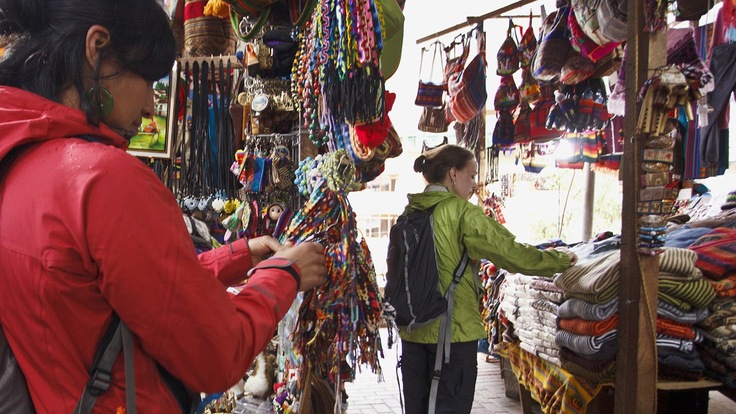Editor's note: This article was published prior to the COVID-19 pandemic. If you need to travel, check the CDC FAQ page about COVID-19 risks for travelers, which provides the latest guidance. For information about outdoor activities wherever you go (close to home is best), read Recreate Responsibly: An Activity-Specific Guide.
Bargaining is common in developing countries and in some parts of Europe.
Although restaurant and chain-hotel prices are usually fixed, you can often bargain for goods and services including local hotels, transportation, guides and souvenirs. (Consult a guidebook for local bargaining advice.)
This article gives you general tips from REI Adventures travel staff on how to bargain fairly and effectively.
Getting Started
Some people don't like bargaining because they feel they might be cheating the merchant. Don't worry—if your destination practices bargaining, the merchant may be more surprised if you don't negotiate.
Just keep it fun by not being an overly aggressive negotiator. You don't want to exploit anyone or create a conflict. Remember that the difference of a dollar or two is likely more important to the merchant than it is to you.
Shop Around
When something catches your eye, check out other shops. Items can vary in quality, style and how much the merchant thinks they're worth. Often, prices will be much lower outside of major tourist shopping areas. If you can shop where the locals do, you'll probably get a better price.
Observe What the Locals Pay
Tourists almost always pay more than locals for the same goods and services. Merchants perceive you, an outsider, as wealthy compared to the local population, whether it's true or not. However, you can gain a bargaining edge by learning how much the locals pay. Although you probably won't get the same price, it's a good starting point.
Decide What It's Worth to You
Regardless of the price tag, first decide how much a potential purchase is worth to you. Do you really want to carry it on the rest of your trip? Is it worth the extra cost to ship home? That piece of artwork may be a bargain at a market, but consider how much it will cost you to frame it later.
Following a Script
Merchants are bargaining pros. When bargaining, you'll both be following a script, each trying to get the best deal from the other. It's a game you both can win when settling on a price that's seen as a good deal on both sides.
Avoid Enthusiasm
Even if you feel you must have the item you're bargaining for, don't let the merchant know. Point out flaws, mention reasons why the item isn't right for you or talk about similar items another merchant sells.
Don't Make the First Offer
Let the merchant make the first offer, which can be inflated anywhere from 2 to 10 times above an acceptable sales price. With this in mind, you can then counter-offer by suggesting a price you might be willing to pay. Remember, the merchant is following a script just like you. He or she might feign shock or insult at your counteroffer as part of the bargaining process.
Suggest You'll Shop Around
If you're not satisfied with how the bargaining is going, tell the merchant you want to look around some more. You may find he or she is suddenly willing to drop the price rather than lose a potential customer.
Shop Smart
If you're purchasing items like jewelry or antiques—and you can't independently verify their authenticity—know that they could be fake. Also be sure that items you buy are approved by customs (not made from endangered species or not allowed on a plane).
Ask for Something Extra
To get around an impasse in the bargaining process, ask for an additional item to be included for free. If you're eyeing several items, ask for an additional discount.
Other Tips
Sometimes bargaining doesn't go the way you want. If your heart is set on an item, it's better to pay a little extra rather than walk away and regret it later.
Keep Your Tone Light
Even when pointing out flaws in an item as part of your bargaining strategy, avoid implying the merchant is selling something worthless.
Don't Feel Obligated to Buy
If you feel a merchant is pressing too hard, you're free to go to another shop. You're not obligated to buy if you initiate some preliminary bargaining. However, if a merchant accepts your offer, you should make a purchase.
Don't Flash Your Cash!
Keep small bills and (if you must) only reveal what you're willing to pay.
